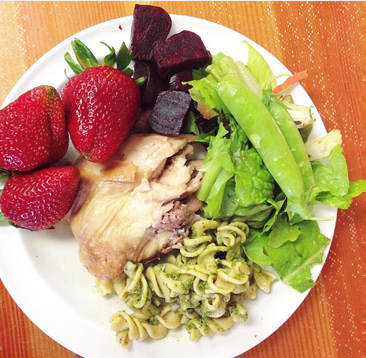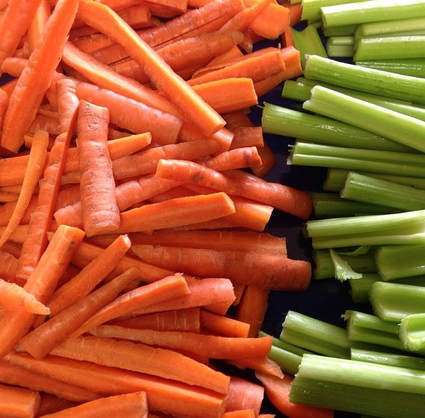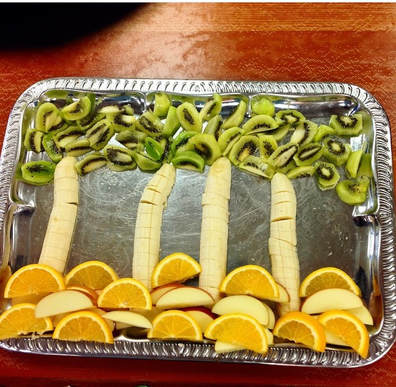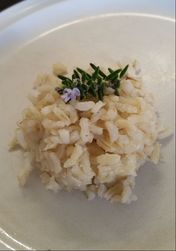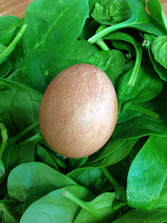Nutrition Information
Nutrition is important in everyday life. Food is the fuel we use to keep our bodies running. Certain foods help our bodies run more efficiently than others, give us brainpower, and give us energy to accomplish everything we want. Foods like protein, fruits, veggies, whole grains, and healthy fats are important in fueling our bodies.
Protein
Protein is important because it helps maintain body structures, such as hair, skin, bones, and muscles. Protein gives our bodies energy so we can go about daily life. There are a variety of foods to choose from when you are looking to fuel your body with protein. It is best to choose proteins that are low in fat most of the time.
Protein
Protein is important because it helps maintain body structures, such as hair, skin, bones, and muscles. Protein gives our bodies energy so we can go about daily life. There are a variety of foods to choose from when you are looking to fuel your body with protein. It is best to choose proteins that are low in fat most of the time.
Veggies
Vegetables provide a variety of health benefits. They give our body nutrients, vitamins, fiber, and are low in fat. They make you feel full and are a great way to fuel your body. Try and incorporate vegetables into every meal you eat and add as many different colored vegetables as you can in order to get a variety of nutrients. It’s fun to try and make a rainbow on your plate with vegetables! It is best to not eat too many starchy vegetables, such as potatoes, as they are high in carbohydrates.
Vegetables provide a variety of health benefits. They give our body nutrients, vitamins, fiber, and are low in fat. They make you feel full and are a great way to fuel your body. Try and incorporate vegetables into every meal you eat and add as many different colored vegetables as you can in order to get a variety of nutrients. It’s fun to try and make a rainbow on your plate with vegetables! It is best to not eat too many starchy vegetables, such as potatoes, as they are high in carbohydrates.
|
Examples of Veggies: -Arugula -Artichokes -Alfalfa sprouts -Asparagus -Beets -Bok Choy -Broccoli -Brussel Sprouts -Cabbage -Carrots -Cauliflower -Celery -Collard greens -Corn -Cucumber -Eggplant -Endive -Escarole -Green beans -Green peas -Jicama -Kale -Leeks -Lettuce -Mung bean sprouts -Mushrooms -Mustard greens -Okra -Onions -Parsnip -Peppers -Plantains -Radicchio |
-Radishes
-Scallions -Snow peas -Spinach -Swiss chard -Squash -Taro -Tomatillos -Tomatoes -Turnips -Watercress -Water chestnuts -Yams -Zucchini |
Fruit
Fruit provides essential nutrients to your body. They can provide potassium, vitamin C, or fiber to help fuel your body. It is best to eat whole fruits, as fruit items such as fruit juices often have a high added sugar content.
Fruit provides essential nutrients to your body. They can provide potassium, vitamin C, or fiber to help fuel your body. It is best to eat whole fruits, as fruit items such as fruit juices often have a high added sugar content.
Whole Grains
Whole grains provide nutrients such as fiber, folate, and iron. Eating whole grains can help with weight management reduce the risk of certain chronic diseases such as heart disease.
Whole grains provide nutrients such as fiber, folate, and iron. Eating whole grains can help with weight management reduce the risk of certain chronic diseases such as heart disease.
Healthy Fats
Fat is a nutrient and is important in your health. Certain fats are much healthier than others. Unsaturated fats are the healthy type of fat. There are different types, such as omega 3 fatty acids, polyunsaturated fats, and monounsaturated fats. They provide health benefits such as lowering the risk of heart disease and other chronic diseases. They also can help lower cholesterol and are important in brain function. Additionally, eating healthy fats keeps you from feeling deprived
Fat is a nutrient and is important in your health. Certain fats are much healthier than others. Unsaturated fats are the healthy type of fat. There are different types, such as omega 3 fatty acids, polyunsaturated fats, and monounsaturated fats. They provide health benefits such as lowering the risk of heart disease and other chronic diseases. They also can help lower cholesterol and are important in brain function. Additionally, eating healthy fats keeps you from feeling deprived
Keywords
- Cholesterol: a white substance, found in the tissues of humans and animals, which acts to clean the bloodstream and surrounds certain nerves. Cholesterol is made in the body but can also be obtained from animal foods such as meat and cheese. It is believed that too much cholesterol in the blood can be harmful to one's health.
- Chronic: tending to a certain behavior or illness over a long time or without stopping
- Disease: a condition that causes harm to the health of a person, animal, or plant; illness; sickness.
- Fat: a white or yellow oily substance found in some parts of animals or plants. Fat is made of carbon, hydrogen, and oxygen.
- Fiber: a plant material found in food that is not digested by the body but that plays an important part in good health.
- Fruit: the part of a plant that has seeds and flesh, such as apple or strawberry. Most fruits are sweet and can be eaten raw.
- Nutrient: something in food that helps people, animals, and plants live and grow.
- Protein: a substance that is made up of nitrogen, carbon, oxygen, hydrogen, and possibly other elements. Proteins are found in all living things and are a necessary part of life processes.
- Vegetable: coming from or made of vegetables that can be eaten.
- Vitamin: one of a number of natural or human-made substances needed for the health and normal working of the body. Humans get most of their vitamins from food.
- Whole Grain: unrefined wheat, corn, or other grain, from which the bran, or husk, and germ have not been removed, and which therefore contains more of the fiber and nutrients considered healthful than does refined grain
Information from
-ChooseMyPlate. Retrieved from https://www.choosemyplate.gov/#slideshow-1
-(2017). KidsWordSmyth. Retrieved from https://kids.wordsmyth.net/we/
